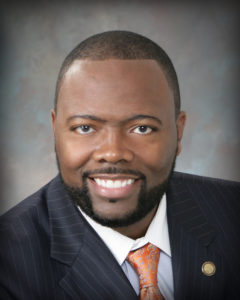

by Reggie Fullwood
Actor and author, Hill Harper, once said, “I’ve gotten a firsthand view at the destruction that black men and black women not being able to stay and build healthy relationships has had on the black family and black children.”
Today, the word family means a lot more than it used to. It’s a new world of sorts and traditional family structures are still the norm, but nontraditional families are on the rise. However for Black America, our families and the unity in our communities is how we survived our toughest days in America.
One could easily argue that the single most devastating cause of instability in the black community is the lack of strong traditional families like we once had.
African Americans have done well in this country, but we also continue to struggle in many socioeconomic areas. On one hand, one could look at the status of the black community and say that we are in disarray and lack unity. But on the other hand to put things in perspective – slavery still existed in America some 160 years ago and segregation was still being practiced in the South some 60 years ago.
But we did elect an African American president – twice. And blacks are heading major corporations and setting trends in entrepreneurship in America and globally. African Americans shape fashion and arts culture throughout the world, and no one can out social media us – OK maybe that’s not a good thing.
So the progress that we have made in this country is all a matter of perspective. But regardless of how good or bad you feel about the black community, you must acknowledge the need for stronger families if we are to rebuild and stabilize the future for our youth.
Some feel that stabilization has to begin with strong black marriages. According to an article in the Washington Post by Jabari Asim, “While 62 percent of adult whites and 60 percent of adult Hispanics are married, only 41 percent of adult African-Americans are. There are 23 divorces per 1,000 black couples per year, compared to 19 for whites.
The number of unmarried women having children is high for whites and Hispanics as well (25 percent and 42 percent, respectively), but astronomical for African-Americans: 69 percent.”
Many researchers have found a direct correlation between the nonexistence of a traditional family structure during that period and today’s black family problems. And let me say this, a traditional family is not for everyone. There are both women and men that do an exceptional job of raising their children as single parents. It’s not the ideal situation for most, but it works and in many cases it works extremely well.
According to Betty DeRamus, the author of “Forbidden Fruit: Love Stories From the Underground Railroad.” She studied unpublished memoirs, Civil War records and other materials to document the efforts of couples (some interracial, most of them black) who risked life and limb to be together during the days of slavery.
She found that the main force behind splitting families up was the slave owners who, DeRamus writes, “justified splitting up plantation couples by claiming that slaves felt little pain at losing a mate and cared nothing about lasting relationships.” In her book she quotes the wife of an Alabama minister who contended, “Not one in a thousand, I suppose, of those poor creatures have any conception whatever of the sanctity of marriage.”
It is that type of logic and thinking that made it easy for slave owners to separate black families with no regard for the emotional ties they shared. Fast forward to today, and one has to ask if the sanctity of marriage is what it used to be or better yet what it needs to be?
We obviously have a major problem in this country when nearly 70 percent of all African American babies are born to unwed mothers. And those of us who get married regardless of race are getting divorces at alarming rate, which I am certainly guilty of.
But as we continue to talk about stabilizing the black community, it is important that we discuss the critical role that strong family structures play. “It is the family that gives us a deep private sense of belonging. Here we first begin to have our self defined for us,” says Howard Thurman, a black minister.
The structure of the black family has undergone significant change over the past 45 years. One dramatic change has been an apparent loosening of the marital bonds. Well, how can you make that assumption you might ask? It’s easy when the proportion of black couples who have divorced has increased, and the proportion of black couples who have married has declined.
Here’s an alarming statistic that brings the matter of the decline in the black family structure home. In 1970, 68 percent of black families had both the husband and wife present. By 1990 that number dropped to just 50 percent, a decrease of 18 percentage points over 20 years, compared with a 6-percentage-point decrease over the same time period for white families. As I mentioned earlier, today the number of two parent black households is around 41 percent.
There is an economic component to divorce as well that has a larger affect or black families. According to a study done by two University of California Davis economists, “The first two years following a divorce, family income among white children falls about 30 percent, while it falls by 53 percent among black children.”
So as we ponder how to lower the murder rate, reduce crime in our neighborhoods, decrease the number of teen pregnancies, better educate our children and all of the other issues plaguing the African America community – it is more important than ever that we get back to the basics. We have to build a strong family foundation.
Signing off from a 12 and under soccer game,
Reggie Fullwood

Be the first to comment